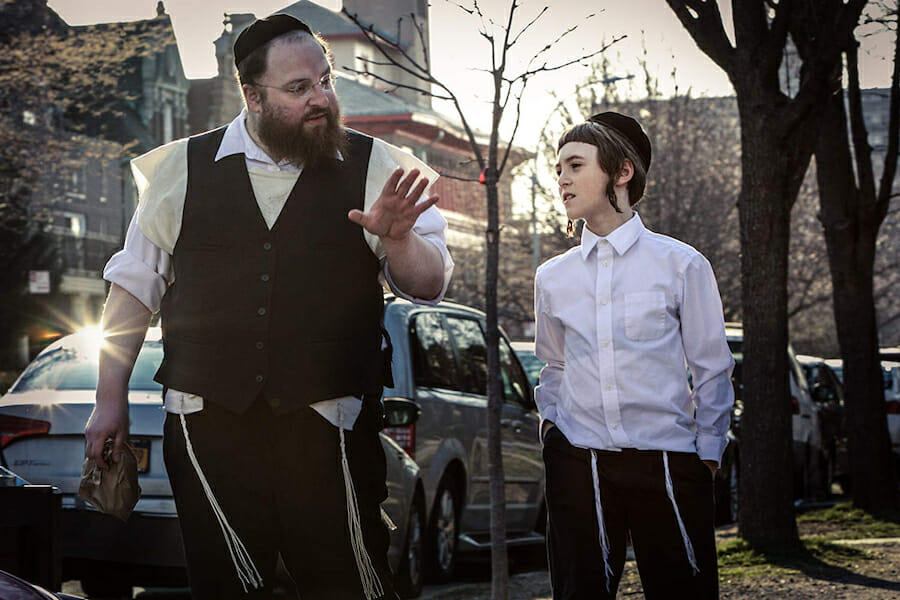
‘Menashe’ Review
If the synopsis were phrased, “Based on the real life story of a figure within a secret society,” we would likely be prepared for either a spy movie or yet another undercover look at a cult. Instead, director Joshua Z. Weinstein provides in Menashe a rare glimpse into a community we outsiders rarely see: the Orthodox & Hasidic Jews of Brooklyn. He does so with a deft touch and due respect, while bringing to light traditions that have existed for generations.
Supposedly shot in secret and featuring non-actors, the dialogue is almost entirely Yiddish (with subtitles), and the sets are mostly small apartments, back rooms, and the streets and stores of the community. There is no sound stage in sight. The story centers on Menashe, a sweaty schlub of a man. Menashe is neither matinee idol nor hero of the silver screen. He’s a regular guy whose wife has passed away, and who wants little more from life than to raise his son Rieven (Ruben Niborski). Unfortunately, tradition calls for every child to be raised in a home with a mother, so Menashe’s former brother-in-law Eizik (Yoel Weisshaus) has taken on the parenting role.
As the one-year anniversary of his wife’s death approaches, we initially believe Menashe’s actions may be related to his mourning. But we soon discover, he didn’t really have things together when she was alive either, and his borderline incompetence at work and failings as a father, simply define who he is. Menashe Lustwig plays the lead in the movie based on his life events, and his approach leaves us wondering if we are witnessing his worst days or merely his every day.
Menashe is hard-headed, but not ambitious. He is anxious to show his Rabbi, The Ruv, (Meyer Schwartz) that he is independent enough to organize the memorial and raise his son. The Rabbi is understanding, but reminds him The Torah states what makes a good life: a nice wife, a nice house, and nice dishes. Menashe falls short on all three, and his actions on dates set by The Matchmaker prove that he has little interest in a new wife, despite that being one of the conditions to his regaining his son.
The tight camera shots throughout play up the closeness of the community and the claustrophobic feel of Menashe’s life. The writers Alex Lipschultz, Musa Syeed, and Joshua Z. Weinstein detail the traditions that seem foreign to us in a way that evokes authenticity and realism, rather than compromise for a wide audience. There is an odd intensity to the film that’s more naturalistic than sentimental. The violin pieces written by Aaron Martin and Dag Rosenqvist complement the perspective that even in a close-knit community, every one of us goes through “stuff” in life that deserves a touch of empathy and understanding. Is it a happy ending? It’s certainly not a Hollywood ending, but it does stay true to the vaguely hopeful tone.

